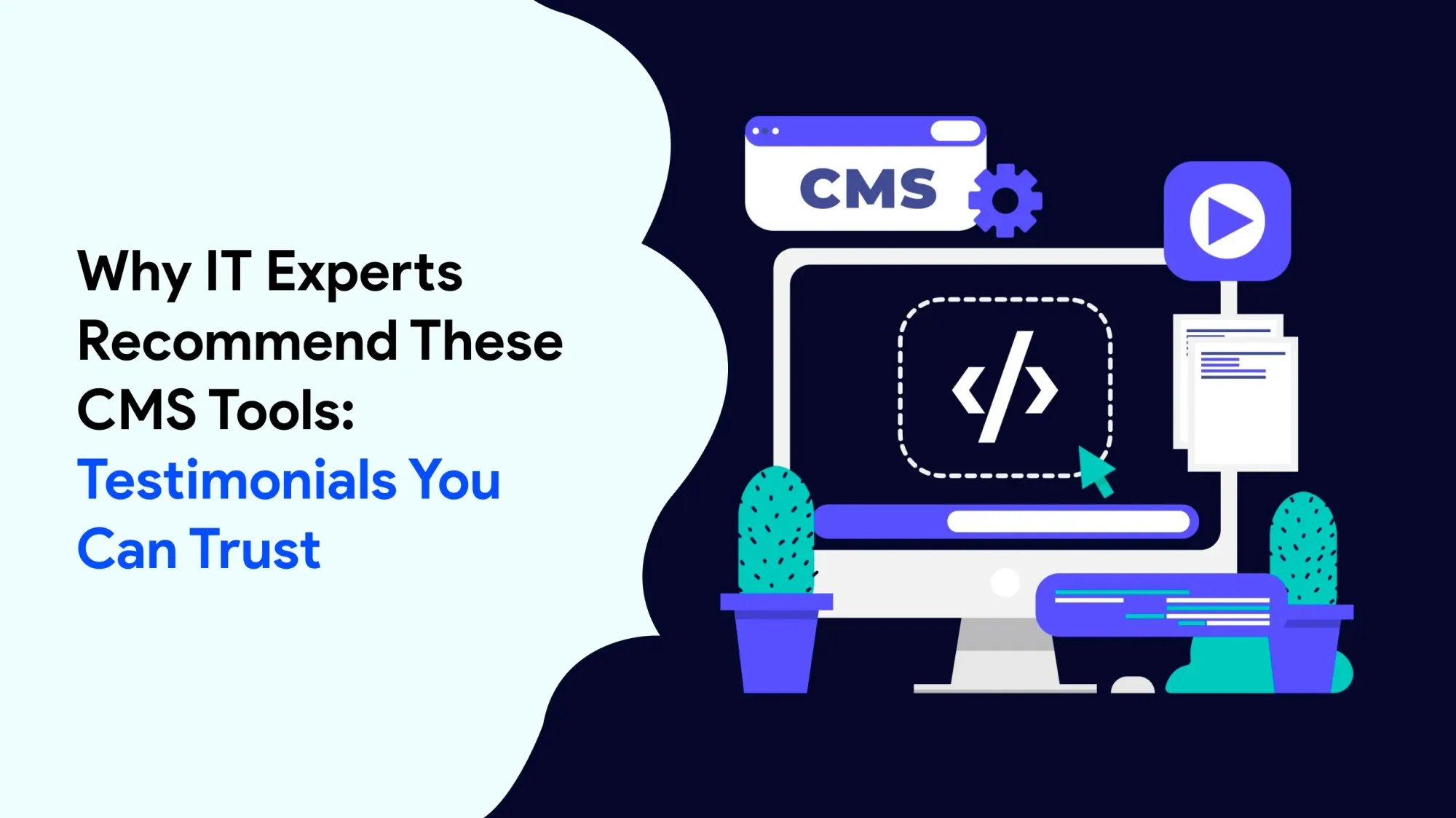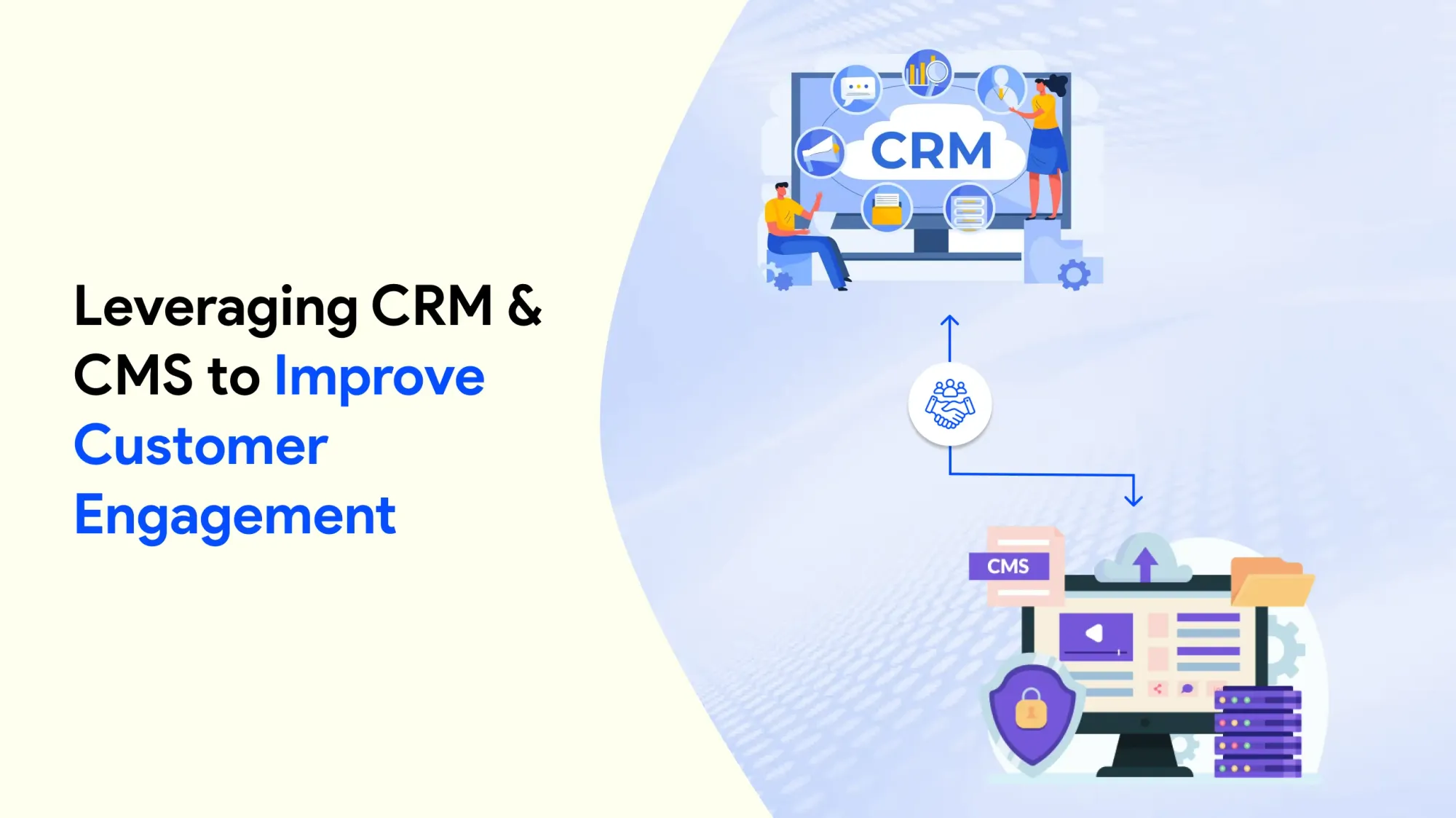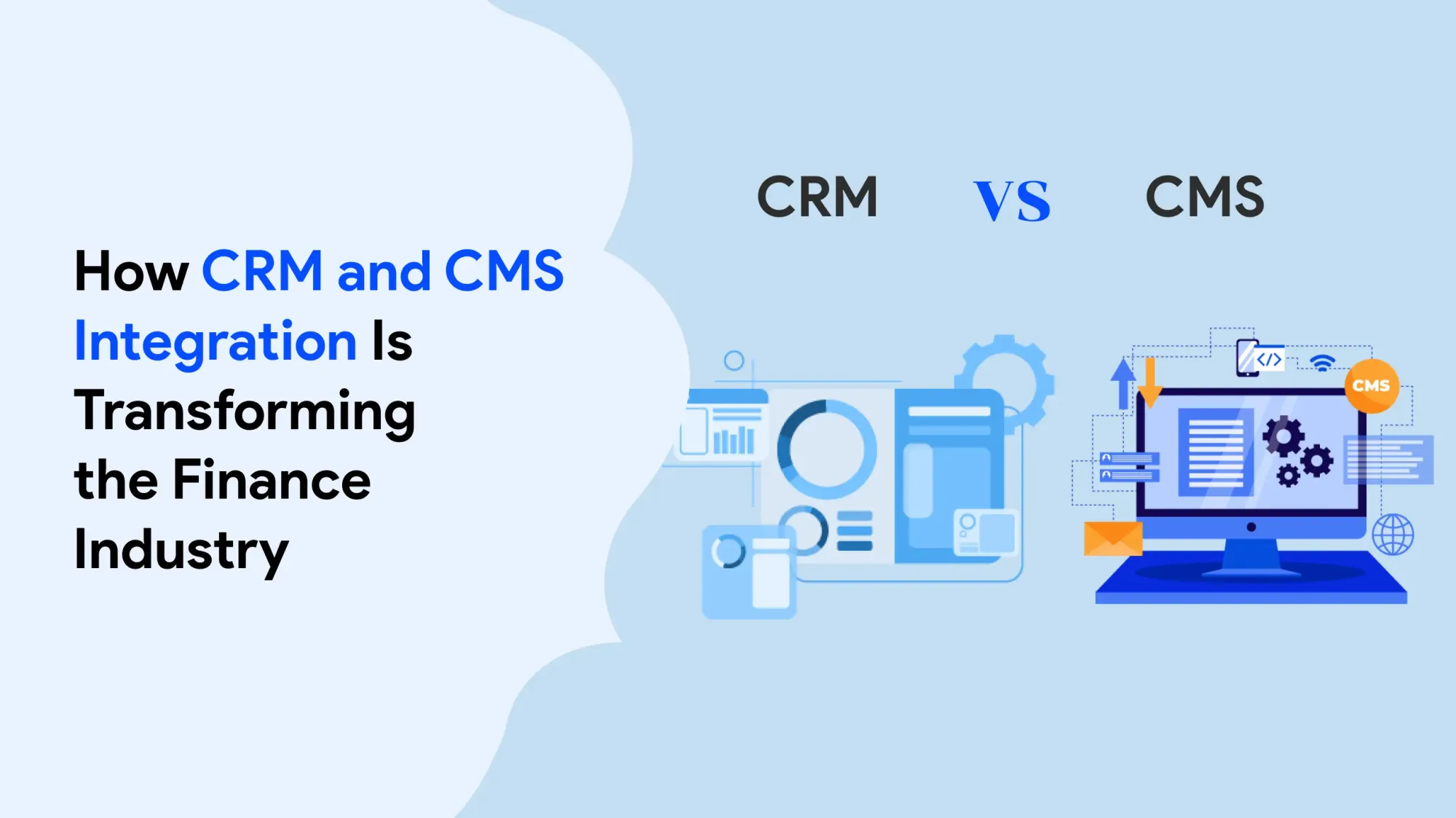Introduction to Ecommerce
Ecommerce is everywhere now with new online stores popping up every day.
To run a successful online business you need a strong ecommerce platform that gives customers a smooth and easy shopping experience.
A good ecommerce site should have a simple interface, options to customise the look and features and easy connections to payment systems and inventory tools.
Many ecommerce sites use WordPress plugins to add extra features, improve SEO and make content easier to manage.
Choosing the right CMS for your ecommerce site is important. It helps you manage product pages, run content marketing and handle customer data without hassle.
A strong CMS lets you update store content quickly, boost your visibility on search engines and give customers a great shopping experience.
Popular CMS platforms for ecommerce also work with payment systems and inventory software.
Using a reliable CMS helps online businesses grow, customise their stores and stay ahead in the fast changing digital market.
Choosing the Right Ecommerce CMS Platform
Choosing the right ecommerce CMS is important for any online business because it affects how well the store performs and how much money it makes.
A good ecommerce CMS should let you customise your store, help with search engine rankings and offer easy content management through drag and drop tools.
Popular ecommerce CMS platforms include WordPress, Shopify and BigCommerce. Each one has its pros and cons.
Open source ecommerce platforms give businesses more control, allowing them to fully customise their online stores to suit their needs.
Using a strong CMS helps your store run smoothly, improves the shopping experience, makes everything easier to manage and increases sales.
Successful ecommerce sites depend on a powerful CMS to keep things running well. With advanced ecommerce features businesses can easily manage product pages, marketing and customer data — leading to more sales, better user engagement and a stronger position in the online market.
Key Features of a Content Management System
Using a separate CMS to manage content helps keep public content and business tasks better organised.
Ecommerce businesses that publish content regularly get more value from using a CMS. Adding a digital asset management system to the CMS improves how content is stored, shared and updated making it easier to follow a content strategy.
Connecting mobile apps to your ecommerce CMS lets you reach more customers and give them a smooth shopping experience across phones, tablets and other devices.
Many businesses prefer using WordPress for ecommerce because it’s flexible, has many useful plugins and makes it easy to combine content marketing with online selling.Choosing the right ecommerce CMS is key to sales, customer experience and content management.
The right ecommerce platform helps you run a successful online store by working with payment systems, inventory tools and marketing software.
Businesses look for platforms that allow a lot of customisation so they can design their store to match their brand.
A good ecommerce platform also comes with built-in SEO tools to help your site show up in search engines and bring in more visitors.
Scalability is important—your ecommerce platform should grow with your business and handle more products and customers over time.
In the end choosing the right ecommerce platform helps your business offer a great shopping experience and compete strongly in the online market.
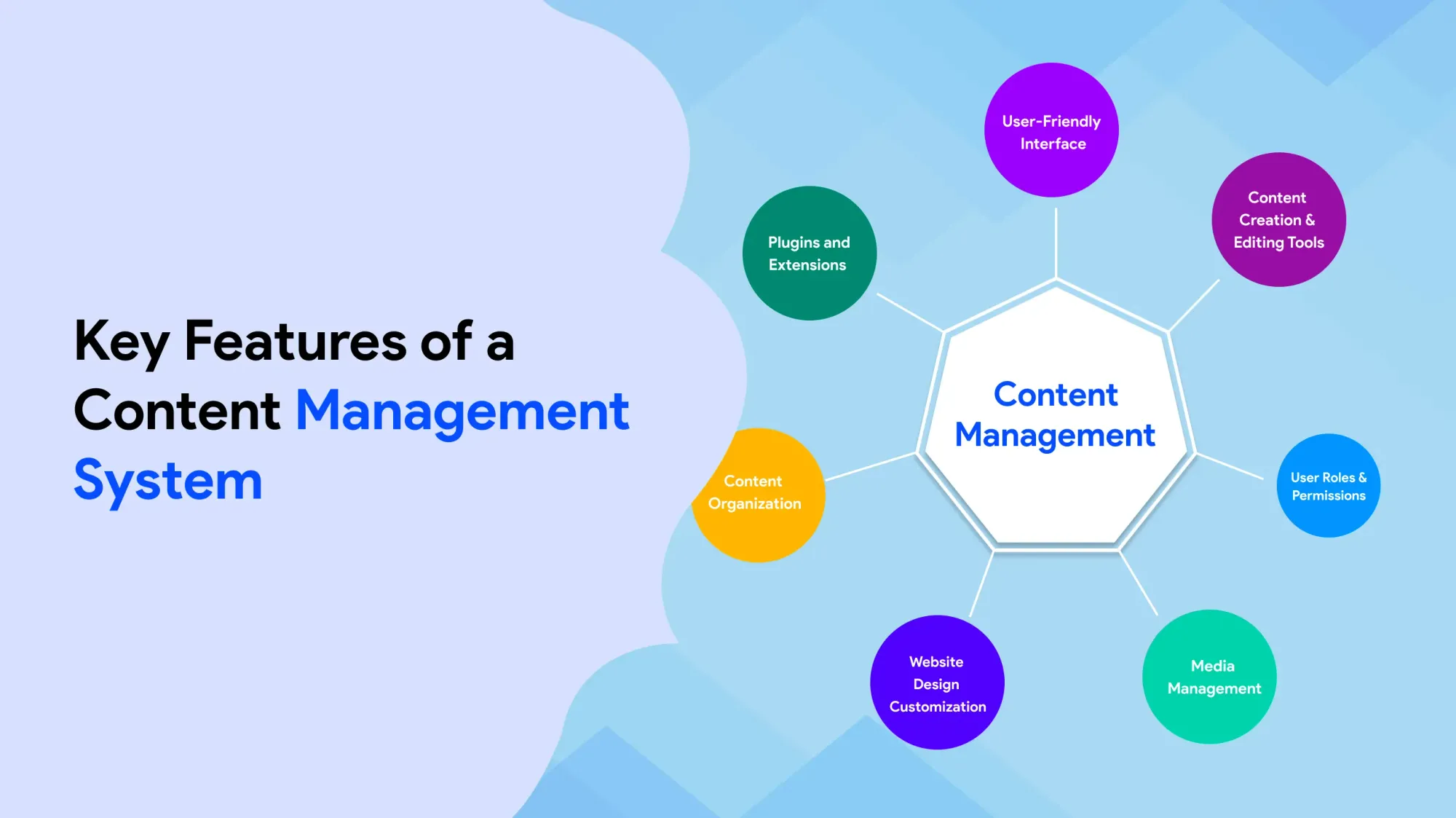
Ease of Use
An easy to use CMS is important for ecommerce businesses because it helps with quick and simple content creation and management.
Drag and drop tools and WYSIWYG editors let people without technical skills update content and build landing pages easily.
A user friendly CMS should have clear navigation, ready made templates you can customise and smooth integration with other apps or tools.
Today many ecommerce platforms come with built in features that make managing the store easier, improve how customers shop and increase sales.
A headless CMS gives ecommerce businesses more flexibility by separating content from the front end design.
This setup makes it easier to connect with different platforms, improves the user experience and makes updating content simpler for both online stores and marketing efforts.
SEO-Friendly Features
Search engine optimisation is critical for ecommerce sites as it affects search engine visibility and organic traffic.
A great ecommerce cms should have built in seo tools including meta tags, keywords and descriptions to help online stores rank higher on search engines. Mobile optimisation is also important as most online shopping is done through mobile devices.
66% of consumers prefer to shop online. Between 2019 and 2023 the number of eCommerce sites worldwide surged from 9.2 million to 26.5 million.
20% of businesses fail because their competitors outperform them. Omnichannel eCommerce requires a CMS that allows content to be delivered consistently across different channels.
57.5% of consumers are more likely to buy from a brand that has a unique brand identity.
Content first strategies can generate organic traffic and lower acquisition costs for online stores. Regularly updating your content helps businesses stay competitive and meet customer expectations.
Integration Flexibility
Seamless integration with other ecommerce platforms, crm systems and digital asset management software is crucial for internet companies.
A robust ecommerce cms should have extensive customisation options including integration with social media platforms, payment gateways and inventory management systems.
Headless cms options are also available giving more flexibility and customisation options for online stores.
Many ecommerce businesses start with a free platform to test their online store concepts before investing in advanced CMS features and customisation options.
Our ecommerce CMS platform has powerful ecommerce features designed to enhance user experience, streamline inventory management and boost sales.
Creating engaging web pages is key to attracting visitors and improving search engine visibility and ultimately your ecommerce store’s success.
CMS for eCommerce
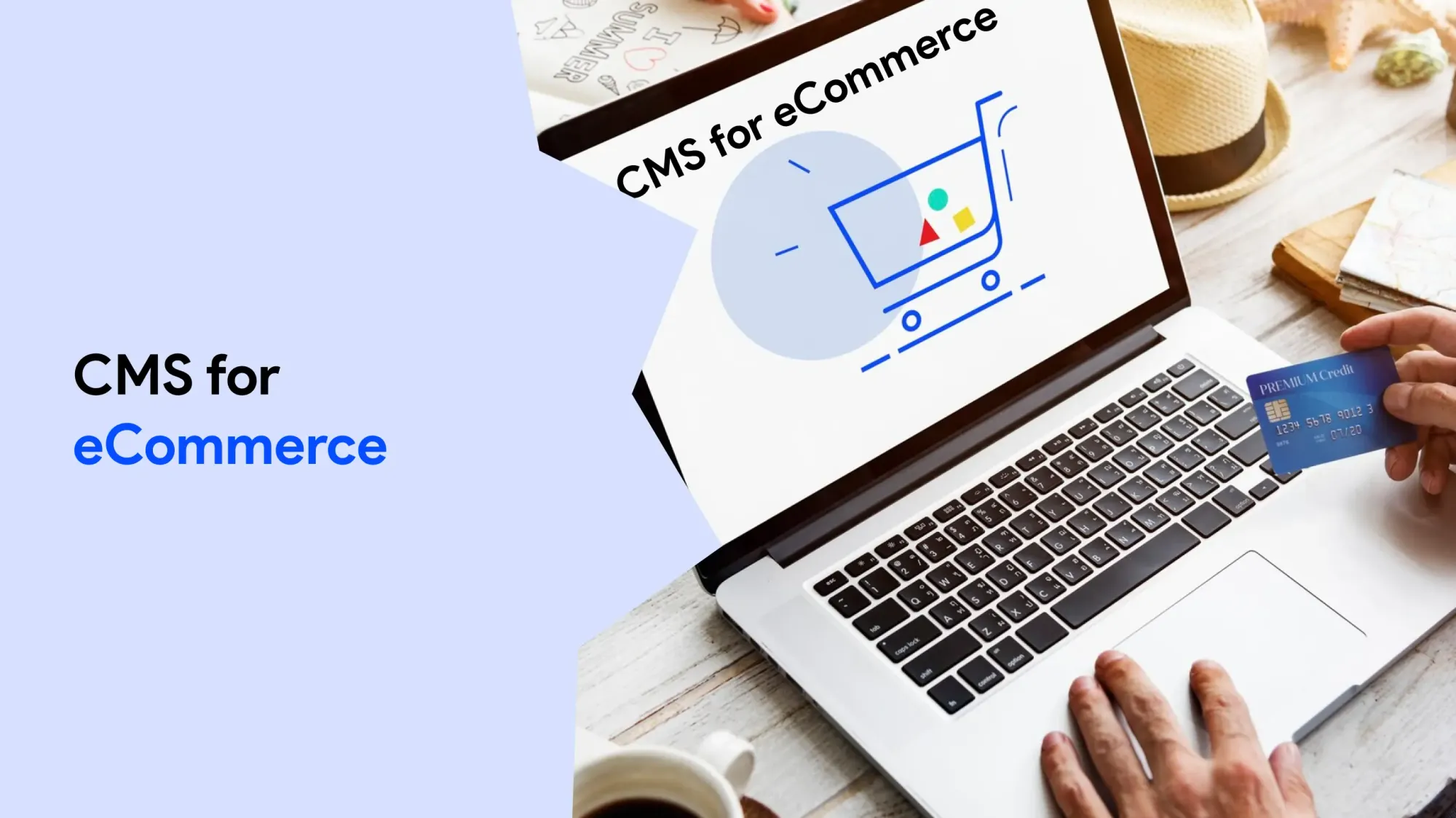
A strong CMS for ecommerce helps online stores manage their content, product pages and marketing campaigns more easily. It works with payment systems, inventory tools and crm software. With built in SEO features and mobile friendly design a good CMS improves user experience and brings in more visitors from search engines and different platforms.
Using a CMS means you don’t have to rely on developers for every content update. If you choose a scalable CMS it can grow with your business as you add more products and get more traffic.
A central dashboard makes it easier to manage content across websites, apps and other sales channels. A content first approach focuses on giving users valuable content while also supporting ecommerce functions.
To get your store found online make sure your site structure is easy for search engines to crawl. This boosts your direct traffic and search rankings.
Many ecommerce CMS platforms have drag and drop tools that make content management simple even for users without technical skills.
This drag and drop feature lets you update product pages and run marketing campaigns quickly making it easier to improve the customer experience and keep up with market changes.
Best eCommerce CMS
Choosing the right ecommerce CMS is key for online stores that want to grow sales and give customers a better shopping experience.
Popular platforms like Shopify, BigCommerce and WordPress have strong features like easy integrations, lots of customisation options, built in SEO tools and mobile friendly design. These features help businesses manage content easily and support growth.
SaaS based ecommerce CMS platforms are great for businesses that don’t have in house developers. They offer an easier setup and come with strong security features to protect client information.
When a CMS has good security in place it’s easier to manage and less likely to face performance issues even when handling many tasks at once.To get the most out of your online store make sure your CMS has inventory tracking, payment processing and order management.
Strong CMS’s connect with marketing tools and payment systems so brands can manage everything in one place.
These tools help ecommerce stores create content, update product pages and give shoppers a more personal experience.
With the right mix of powerful features and ease of use online stores can connect with customers, increase sales and stay competitive in the digital world.
Top Ecommerce CMS Options
Shopify, BigCommerce and WordPress are popular ecommerce cms platforms each with their pros and cons.
Shopify has a user friendly interface and lots of customisation options, BigCommerce has advanced features and payment gateway integrations.
WordPress is a popular open-source cms platform with lots of customisation options and plugins and themes.
Scaling a CMS is important as online stores often face increasing customer demand and product lines. SaaS CMS platforms are a one-stop solution for eCommerce and content management for businesses without in-house developers.
Open-source CMS platforms offer a lot of customisation and control over the CMS but require technical expertise.
Content Marketing for an Ecommerce platform
Content is key for ecommerce businesses to engage with customers and drive sales.
Key features of a successful native advertising strategy are high quality content, social media integration and email promotion campaigns.
Online stores can use native advertising to build brand awareness, drive direct traffic and increase customer loyalty.
Many ecommerce businesses benefit from CMS’s that support multiple languages so they can reach a broader global audience and personalise content.
Choosing an open source ecommerce CMS gives businesses flexibility, flexibility and control over their online store design and functionality.
Content Creation and Management

Content creation and management are critical components of a successful ecommerce marketing. A great ecommerce cms should have tools for content creation including blog posts, product pages and user generated content.
Content management is organising, editing and publishing content and analysing performance and making data driven decisions.
The WooCommerce plugin is a powerful tool for internet companies, it allows full integration of ecommerce functionality within WordPress sites. It has lots of customisation options, supports multiple payment gateways and enhances user experience for ecommerce brands.
Developing a content strategy is important for ecommerce businesses to engage customers, drive direct traffic and overall brand visibility.
Combining Templates, CMS, and Content Marketing
Templates, cms and native advertising can help online stores make a profitable digital store. Key features of a successful combination are full integration, lots of customisation options and high quality content.
Internet companies can use templates to create a brand image, cms platforms to manage and publish content.
Good website development is important to build a robust ecommerce CMS that has full integration, advanced customisation and enhanced user experience.
Choosing the right ecommerce CMS often requires some level of technical expertise to fully leverage advanced customisation options and full integration capabilities.
Businesses with technical expertise can unlock the platform’s full potential so their online store can benefit from powerful features, better user experience and efficient content management for growth.
Measuring Success and ROI
Measuring success and ROI is important for ecommerce businesses to evaluate native advertising strategies.
Key metrics are website traffic, engagement, conversion rates and customer loyalty. Etailers can use analytics software to track performance and make data driven decisions.
Effective ecommerce strategies rely on marketing tools integrated within the CMS to streamline campaigns and increase customer engagement. These tools allow businesses to automate email marketing, manage social media, analyse customer behaviour, optimise content for search engines and drive traffic and sales for etailers.
An eCommerce store thrives when powered by a content management system that has full integration, user friendly interfaces and advanced customisation options. Efficient management of product pages, promotion campaigns and customer information ensures a smooth shopping experience and helps internet companies increase sales and build customer relationships.
Implementing a Content Management System CMS
Setting up a content management system (CMS) is important for internet companies. It helps you manage and publish content.
A good CMS setup should have smooth integration with other tools, lots of customisation options and ability to publish quality content.
Etailers can use a CMS to keep their brand message consistent, update website content and attract more visitors through search engines.
By connecting third-party apps to your ecommerce CMS you can do more with your store—like link with marketing tools, payment systems, analytics and social media platforms.
Read More:
Create Standout Social Media Graphics That Drive Engagement
Getting Started with a CSS Grid Layout on Shopify: A Complete Developer’s Guide
The Role of LinkedIn in Building a Strong Digital Presence for eCommerce




